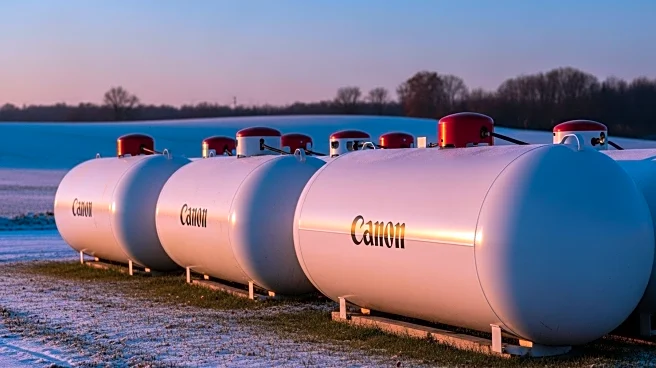What's Happening?
The Propane Education & Research Council (PERC) is focusing on improving safety and efficiency for agricultural customers as the fall drying and heating seasons commence. Eric Kuster, Senior Vice President of Safety, Education, and Compliance at PERC, emphasizes the importance of identifying pain points from previous seasons to enhance customer service and operational efficiency. Key strategies include early communication with customers about demand expectations, regular delivery of propane consumer safety information, and ensuring proper training and documentation for fuel transfer. Additionally, PERC advises on maintaining clear access to tanks, seasonal inspection of propane equipment, and offering winterization services. The council also highlights the importance of equipping employees with necessary training and safety gear to handle the busy fall and winter months effectively.
Why It's Important?
The initiatives by PERC are crucial for the agricultural sector, which relies heavily on propane for heating and drying during the fall and winter seasons. By addressing past inefficiencies and enhancing safety protocols, PERC aims to reduce injuries and improve customer satisfaction. This proactive approach not only helps in preventing service disruptions but also builds trust with agricultural customers. The emphasis on employee preparedness ensures that the workforce is equipped to handle increased demands, thereby maintaining operational continuity. These measures are likely to benefit both propane suppliers and agricultural businesses by optimizing resource use and minimizing risks associated with propane handling.
What's Next?
PERC plans to continue its efforts in educating and preparing both customers and employees for the upcoming seasons. This includes ongoing communication about demand expectations and safety protocols, as well as regular training updates for drivers and technicians. The council also encourages the use of tank monitors on farm tanks to prevent unexpected depletion. As winter progresses, PERC aims to maintain high levels of motivation and performance among employees through clear goal-setting and recognition of outstanding efforts. These steps are expected to further enhance service delivery and customer satisfaction in the agricultural sector.
Beyond the Headlines
The focus on safety and efficiency by PERC highlights the broader implications for the energy sector, particularly in terms of regulatory compliance and environmental stewardship. By promoting best practices in propane handling, PERC contributes to reducing the environmental impact of agricultural operations. Additionally, the emphasis on customer education and employee training reflects a commitment to fostering a culture of safety and responsibility within the industry. These efforts may lead to long-term improvements in industry standards and practices, benefiting both the environment and the economy.










